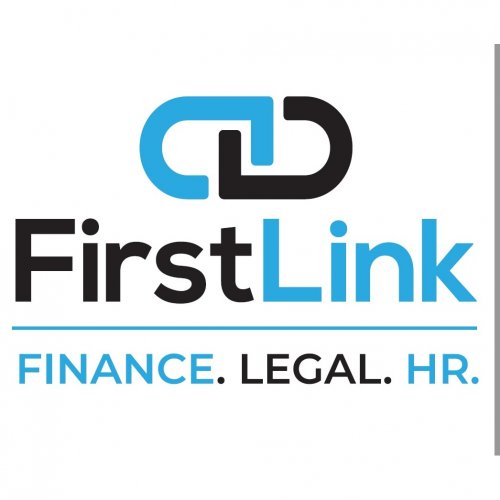Best Hiring & Firing Lawyers in Port of Spain
Share your needs with us, get contacted by law firms.
Free. Takes 2 min.
List of the best lawyers in Port of Spain, Trinidad and Tobago
About Hiring & Firing Law in Port of Spain, Trinidad and Tobago
Hiring and firing laws in Port of Spain, Trinidad and Tobago, are governed by a combination of statutory regulations and common law practices that aim to balance the rights and obligations of both employers and employees. These laws provide a framework for fair employment practices, ensuring that both parties are protected from unjust treatment. The primary legislation governing this area is the Industrial Relations Act, alongside cases established under common law that influence employment practices.
Why You May Need a Lawyer
Legal advice is often crucial in the hiring and firing process to ensure compliance with local regulations. You may need a lawyer in the following situations:
- To draft or review employment contracts to ensure they meet legal standards.
- In cases of wrongful termination or unfair dismissals.
- To navigate complex employee relations matters or disputes.
- If you are accused of discriminatory hiring practices.
- When terminating an employee who has breached their contract or company policy.
Local Laws Overview
The legal landscape of hiring and firing in Port of Spain is primarily shaped by the Industrial Relations Act, the Minimum Wages Act, and related local statutes. Key aspects include:
- Employment Contracts: Legally binding agreements that must outline terms of employment, including job duties, compensation, and conditions for termination.
- Termination Procedures: Employers must provide valid reasons for dismissal, and in some cases, notice or severance pay, in accordance with statutory regulations.
- Discrimination Laws: The Equal Opportunity Act addresses unfair treatment in hiring due to race, gender, religion or other protected characteristics.
- Worker Rights: Enforced by the Ministry of Labour and Small Enterprise Development to ensure fair wages, safe working conditions, and protection of workers’ rights.
Frequently Asked Questions
What is considered unfair dismissal in Trinidad and Tobago?
Unfair dismissal occurs when an employee is terminated without just cause or without following due process as stipulated in the employment contract and relevant laws.
Do all employees in Port of Spain need written employment contracts?
While not all employment arrangements require written contracts, having one helps in preventing disputes and ensuring clarity on the terms of employment.
How much notice is required before terminating an employee?
The notice period varies depending on the contract terms, but typically ranges from one to three months, as governed by the labor laws and industry practices.
Can an employee be dismissed without notice?
Dismissal without notice is possible in cases of gross misconduct or other serious breaches of the employment contract.
What options does an employee have if they believe they have been unfairly dismissed?
An employee can file a complaint with the Ministry of Labour and possibly escalate the issue to the Industrial Court if necessary.
Are there any legal protections against discrimination in hiring practices?
Yes, the Equal Opportunity Act provides protection against discrimination based on race, gender, religion, and other protected attributes during hiring.
What constitutes a breach of an employment contract?
A breach can include failure to meet the terms of the contract, such as non-payment of salary, altering job roles without agreement, or failing to provide working conditions as stated.
How is severance pay calculated?
Severance pay is generally calculated based on the employee’s length of service, as well as their salary at the time of termination, according to statutory guidelines.
What is the role of the Industrial Court?
The Industrial Court adjudicates disputes relating to industrial relations matters, including unfair dismissals and employee grievances.
Can employees appeal termination decisions?
Yes, employees can challenge termination decisions through internal grievance procedures and, if necessary, seek redress through legal proceedings.
Additional Resources
To deepen your understanding or get assistance with hiring and firing legalities, you can consult the following local resources:
- Ministry of Labour and Small Enterprise Development: Offers guidance on employment laws and disputes.
- Equal Opportunity Commission: Addresses cases of discrimination in employment practices.
- Professional legal firms specializing in labor law in Trinidad and Tobago.
Next Steps
If you are facing legal issues related to hiring and firing, consider taking these steps:
- Consult the Ministry of Labour for advice on your specific situation.
- Reach out to a lawyer who specializes in employment law to get tailored legal advice.
- Review your employment contracts and company policies to ensure compliance with local laws.
- Engage in dispute resolution processes, if applicable, before pursuing litigation.
Seeking prompt and professional assistance can help in effectively managing employment-related legal challenges.
Lawzana helps you find the best lawyers and law firms in Port of Spain through a curated and pre-screened list of qualified legal professionals. Our platform offers rankings and detailed profiles of attorneys and law firms, allowing you to compare based on practice areas, including Hiring & Firing, experience, and client feedback.
Each profile includes a description of the firm's areas of practice, client reviews, team members and partners, year of establishment, spoken languages, office locations, contact information, social media presence, and any published articles or resources. Most firms on our platform speak English and are experienced in both local and international legal matters.
Get a quote from top-rated law firms in Port of Spain, Trinidad and Tobago — quickly, securely, and without unnecessary hassle.
Disclaimer:
The information provided on this page is for general informational purposes only and does not constitute legal advice. While we strive to ensure the accuracy and relevance of the content, legal information may change over time, and interpretations of the law can vary. You should always consult with a qualified legal professional for advice specific to your situation.
We disclaim all liability for actions taken or not taken based on the content of this page. If you believe any information is incorrect or outdated, please contact us, and we will review and update it where appropriate.













